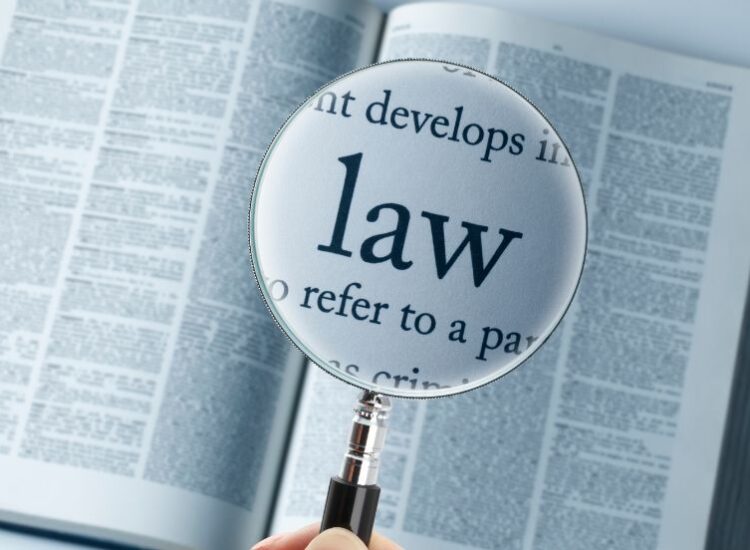Navigating Maritime Regulations: A Practical Overview
Admiralty law, commonly referred to as maritime law, governs the rights, activities, and disputes that arise on navigable waters. With a rich historical foundation, these laws are essential to ensuring order and efficiency within global maritime operations. Whether you’re a maritime professional, part of a shipping business, or simply intrigued by the legal framework of the open seas, a solid understanding of admiralty law is invaluable. This guide explores the fundamental principles of maritime law, its key components, and its critical role in today’s maritime industry.
Toc

The Foundations of Admiralty Laws
Admiralty laws, also known as maritime laws, have a rich and extensive history, rooted in the early maritime traditions of ancient civilizations. These legal frameworks are specifically designed to address the unique challenges of maritime travel and commerce, covering areas such as shipping logistics, disputes over cargo, environmental concerns, and the safety and welfare of crew members. Over the centuries, these laws have evolved into a comprehensive legal system that governs activities on international waters, serving as a pillar of order and accountability in the global maritime industry. This article takes an in-depth look at the origins, development, key principles, and modern applications of admiralty laws, shedding light on their critical role in facilitating international trade and navigation.
Historical Background of Admiralty Laws
The origins of admiralty laws can be traced back to the maritime practices of ancient Rome and Byzantium, where foundational principles for regulating trade and resolving disputes were first established. Both civilizations recognized the importance of structured rules to oversee seaborne commerce, ensuring fair conduct among traders and providing a system for handling conflicts. These early practices laid the groundwork for the development of more formal maritime laws, which later became indispensable as seafaring became central to economic and cultural exchanges.
During the Medieval period, these early legal frameworks were refined as maritime trade expanded across Europe, Asia, and the Mediterranean. With the growth of bustling ports and the increasing movement of goods, nations with strong maritime traditions, such as Italy, Spain, and the Netherlands, played pivotal roles in shaping the laws that would eventually influence global standards. These countries established maritime codes, such as the Consolato del Mare in Italy, which became influential reference points for resolving disputes among merchants and shipowners. The English Admiralty Court emerged during this era as one of the most significant contributors to modern maritime law. Established to handle disputes in international waters, this court set important precedents and helped unify maritime legal principles. Its rulings became a cornerstone of admiralty law, influencing legislation in other countries and shaping the global legal framework we see today.
The 17th and 18th centuries saw further development of maritime law as international trade routes expanded. With the rise of colonial powers, like Britain and Spain, and the increase in transoceanic commerce, the need for a universal legal framework to govern maritime activities became even more critical. Treaties and conventions between nations started to codify maritime rules, addressing pressing issues such as piracy, salvage rights, and the treatment of seafarers. These agreements were instrumental in creating a more uniform system of maritime governance, facilitating smooth interactions between ships and ports from different regions. Such efforts culminated in the establishment of international organizations, such as the International Maritime Organization (IMO), which continues to oversee and update maritime law in the modern era. The IMO remains crucial in developing safety standards, addressing environmental concerns, and adapting legal frameworks to the evolving challenges of global maritime activity.
Key Principles of Admiralty Laws
At their core, admiralty laws are designed to address the complex realities of maritime navigation and commerce, encompassing a wide range of legal principles that govern activities on the high seas. These laws are particularly vital in ensuring that international waters, which often fall outside the jurisdiction of individual nations, remain a regulated space for trade and travel. Shipowners, for instance, bear significant liability under maritime law, ensuring they are held accountable for issues such as vessel safety, environmental compliance, and damage to cargo. These laws provide robust protections for maritime workers, including seafarers, dockworkers, and other personnel involved in the shipping industry, safeguarding their rights and ensuring fair treatment in cases of disputes or accidents.
Shipping contracts are another critical area governed by admiralty laws. These contracts outline the obligations of shipowners, charterers, and freight carriers, providing a clear framework for the transportation of goods. Admiralty laws also establish detailed guidelines for managing incidents at sea, such as collisions between vessels or accidents involving crew members. In such cases, the law addresses liability, compensation, and the steps required to prevent future occurrences. For example, the principle of “limitation of liability” ensures that shipowners are only held accountable for damages up to a certain value, balancing their financial risk with the need to compensate parties affected by maritime incidents.
Environmental conservation has become an increasingly important component of modern admiralty law. With growing concerns over pollution and the impact of maritime activities on marine ecosystems, these laws now include provisions to protect the environment. Regulations govern everything from the disposal of waste and the use of ballast water to the management of oil spills, ensuring that shipping practices are sustainable and environmentally responsible. International agreements, such as the MARPOL Convention, have been instrumental in reducing pollution from ships and safeguarding marine biodiversity. These provisions highlight the evolving nature of admiralty law as it adapts to address modern challenges.
1. https://dalatfarmer.vn/mmoga-understanding-maritime-law-in-houston/
2. https://dalatfarmer.vn/mmoga-understanding-jordan-maxwell-and-admiralty-law/
3. https://dalatfarmer.vn/mmoga-foundational-concepts-in-admiralty-and-maritime-law/
4. https://dalatfarmer.vn/mmoga-exploring-the-fundamentals-of-international-trade-law/
5. https://dalatfarmer.vn/mmoga-comprehensive-guide-to-maritime-law-firms/
Additionally, admiralty laws cover salvage operations, addressing the rights and responsibilities of those who recover lost or stranded ships and cargo. Salvage laws ensure that salvors—those who recover property from maritime accidents—are fairly compensated for their efforts while also emphasizing the importance of safety and environmental considerations. Admiralty law also plays a critical role in combating piracy and other crimes at sea, providing a legal framework for prosecuting offenders and ensuring the safety of maritime routes. Modern initiatives, such as coordinated international patrols in high-risk areas like the Gulf of Aden, have been crucial in reducing piracy incidents and maintaining secure trade routes.
The Ongoing Evolution of Admiralty Laws
By addressing these diverse and specialized areas, admiralty laws have become a multidisciplinary legal framework that plays a vital role in global commerce and navigation. They continue to evolve alongside advancements in technology, changes in international trade, and emerging global challenges. For instance, the rise of autonomous ships and digital shipping platforms has introduced new legal questions surrounding liability and cybersecurity, prompting updates to traditional maritime regulations. Similarly, the increasing focus on climate change and sustainability is driving the adoption of stricter environmental standards for the shipping industry.
Through a blend of historical traditions and modern innovations, admiralty law remains essential to the functioning of the global maritime industry. Its principles not only ensure the smooth operation of international trade but also protect the rights of those who work at sea and safeguard the marine environment. As the maritime world continues to change, admiralty law will undoubtedly adapt, maintaining its vital role in regulating the complexities of global seafaring. Whether addressing age-old challenges like piracy or tackling new issues like autonomous shipping, admiralty laws are central to ensuring a fair and sustainable future for maritime commerce.
Applications of Admiralty Laws in Modern Times
While much has changed in the realm of maritime activities, admiralty laws remain a cornerstone of regulation, ensuring the maritime industry operates with order, fairness, and accountability. These legal principles, rooted in centuries-old practices, have evolved to address the complexities of modern maritime activities while maintaining their fundamental purpose. Admiralty laws apply to a wide array of scenarios, encompassing global trade, passenger travel, environmental preservation, and the rights of maritime workers. By creating a robust legal framework, these laws play a critical role in supporting the smooth functioning of a sector that is vital to the global economy and interconnected world.

Shipping and Trade Regulations
One of the most critical applications of admiralty laws lies in regulating international shipping—a lifeline of global trade and commerce. These laws govern various aspects of maritime operations, including ship registration, ownership, maintenance, and compliance with international standards. They also address the legal complexities arising from shipping contracts, such as disputes over lost or damaged cargo, freight charges, vessel charters, or delayed deliveries. Without these regulations, conflicts within the maritime industry could escalate and disrupt vital trade routes and supply chains. Admiralty laws establish standardized rules and processes for resolving such disputes, mitigating risks and ensuring a structured, transparent approach to conflict resolution.
This standardization is particularly important given the vast scope of the maritime industry, which facilitates the movement of billions of dollars’ worth of goods globally every year. From transporting oil and raw materials to delivering consumer products and food supplies, maritime shipping provides the backbone for international supply chains, connecting producers, manufacturers, and consumers across the globe. In addition, these laws also regulate the insurance aspects of shipping, ensuring that both parties involved in maritime trade are protected against potential financial losses, whether due to accidents, natural disasters, or unforeseen delays. By promoting efficiency and accountability, admiralty laws play a crucial role in sustaining the global economy’s lifeblood: international trade.
Protection of Maritime Workers
Admiralty laws also extend their reach to protect the individuals who keep the maritime industry running—seafarers, dockworkers, and other maritime employees. These workers are essential to the operation of ships, ports, and logistics chains, yet they often face significant challenges, including hazardous working environments, long hours, and extended periods away from home. Admiralty laws seek to address these challenges and ensure that the rights and well-being of maritime workers are upheld.
One notable example of this protection is the Jones Act, a U.S. law that provides injured maritime workers with the right to seek fair compensation for injuries sustained on the job. This vital legislation ensures that workers have access to proper legal recourse and medical assistance in case of accidents, helping to alleviate the financial and physical burdens they may face. Beyond injury compensation, admiralty laws also regulate working conditions aboard vessels, covering a range of issues such as safety standards, wage requirements, hours of rest, and living conditions on board. These measures aim to prevent exploitation and improve the quality of life for workers in an industry that demands significant physical and mental endurance.
Furthermore, these protections extend to ensuring that employers and vessel owners adhere to international conventions, such as the Maritime Labour Convention (MLC), which sets minimum standards for working conditions and crew welfare. This global framework reinforces the principles of fairness and accountability, helping to create a more equitable and sustainable environment for maritime employees. By acknowledging and addressing the unique challenges faced by maritime workers, admiralty laws contribute to a healthier, more resilient workforce that is better equipped to handle the demands of the industry.
Addressing Modern Challenges
In a rapidly evolving world, admiralty laws must continually adapt to meet the changing needs of the maritime industry. As globalization intensifies and technology advances, new challenges emerge, ranging from cybersecurity threats and autonomous shipping to stricter environmental regulations and climate change. Admiralty laws are evolving to address these issues, ensuring that the maritime sector remains safe, sustainable, and aligned with modern standards.
1. https://dalatfarmer.vn/mmoga-understanding-jordan-maxwell-and-admiralty-law/
2. https://dalatfarmer.vn/mmoga-foundational-concepts-in-admiralty-and-maritime-law/
3. https://dalatfarmer.vn/mmoga-comprehensive-guide-to-maritime-law-firms/
4. https://dalatfarmer.vn/mmoga-exploring-the-fundamentals-of-international-trade-law/
5. https://dalatfarmer.vn/mmoga-understanding-maritime-law-in-houston/
For example, the sector has seen increased scrutiny over its environmental impact, with laws and conventions now addressing issues such as illegal dumping, oil spills, and emissions from shipping vessels. International agreements like the International Convention for the Prevention of Pollution from Ships (MARPOL) aim to minimize environmental damage and hold violators accountable. At the same time, advancements in technology, such as the development of autonomous vessels, require new legal frameworks to address questions of liability, safety, and operations. Admiralty laws are stepping up to provide clarity and regulation as these innovations reshape the industry.
By maintaining their foundational principles of fairness, order, and accountability while adapting to modern complexities, admiralty laws continue to serve as an indispensable backbone of the maritime sector. Whether facilitating global trade, protecting the rights of workers, or ensuring accountability in environmental practices, these laws uphold the integrity of an industry critical to the world’s economy and sustainability. Their continued evolution ensures that the maritime sector remains resilient, equitable, and prepared for the challenges ahead.
Challenges in Implementing Admiralty Laws
While the scope of admiralty laws is extensive, implementing them presents significant challenges due to overlapping jurisdictions, evolving shipping technologies, and the increasing complexity of maritime disputes. These laws, which govern activities and disputes on navigable waters, must balance traditional legal frameworks with modern demands brought about by global trade and technological progress.

Jurisdictional Complexities
One of the most difficult aspects of admiralty law is determining jurisdiction over maritime cases. Because international waters lie beyond the exclusive legal boundaries of any one country, disputes often involve parties from different nations with competing legal systems. This creates a need for harmonization between domestic legal frameworks and international maritime agreements, such as the United Nations Convention on the Law of the Sea (UNCLOS). For instance, cases involving ship collisions, piracy, or contractual disputes over cargo often require careful negotiation to determine which nation’s courts should preside. The lack of a unified global legal standard can lead to lengthy delays in resolving disputes and inconsistent outcomes.
Adapting to Technological Changes
Rapid advances in shipping technologies, including automated vessels, advanced cargo tracking systems, and greener propulsion methods, have created new legal considerations. Issues of liability become more complex as unmanned ships challenge traditional notions of negligence or human error. Cybersecurity risks, such as hacking into navigation systems or tampering with cargo tracking data, further complicate the legal landscape. Admiralty laws must not only address existing concerns but also anticipate future scenarios, requiring legislators and legal professionals to stay ahead of emerging trends. For example, questions about who is liable in the case of an automated vessel’s failure highlight the pressing need to update regulations to reflect these technological developments.
By addressing these challenges, admiralty laws aim to maintain order and fairness in an industry that remains vital to global commerce. However, the dynamic nature of maritime activities demands ongoing innovation and collaboration across nations and legal systems.
Why Admiralty Laws Matter Today
Admiralty laws, also known as maritime laws, are more than just a niche subset of legal doctrine—they’re essential for ensuring order and harmony in global maritime activities. These laws govern a wide range of issues, from the rights and responsibilities of seafarers to the fair regulation of international trade and the resolution of disputes arising on the seas. Whether it’s safeguarding the rights of workers on ships, addressing environmental concerns like oil spills, resolving trade disagreements between countries, or handling incidents such as collisions and salvage operations, admiralty laws provide a strong legal foundation to ensure the smooth and fair functioning of maritime activities.
As the world becomes increasingly interconnected through global trade, the importance of these laws continues to grow. By staying informed about admiralty laws, businesses involved in shipping, fishing, or trade, as well as individuals like shipowners or maritime workers, can navigate the complexities of the seas with confidence. This legal framework not only protects their rights but also ensures they can operate within a system designed to promote fairness, sustainability, and efficiency in maritime practices.










